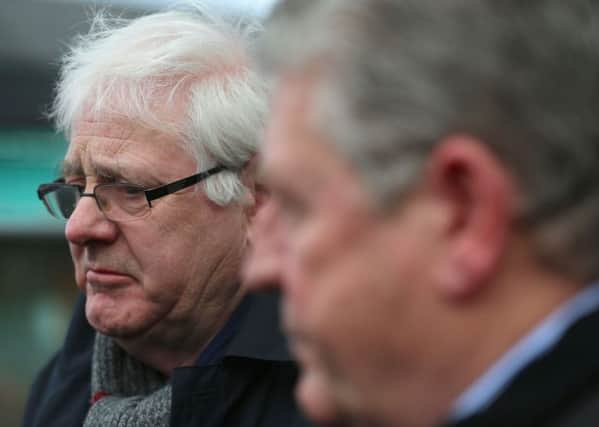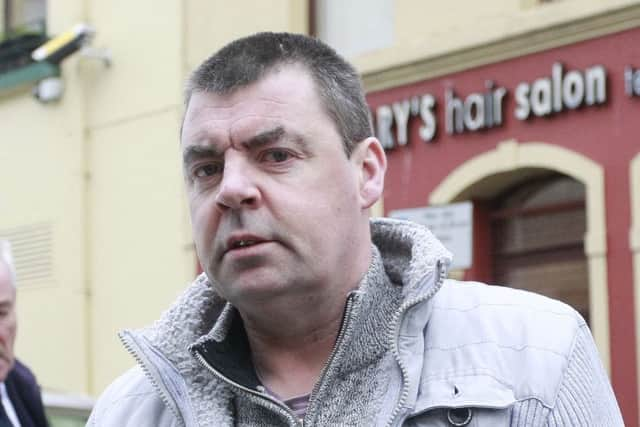Omagh bombing trial: Case collapses as charges against bricklayer withdrawn


Bricklayer Seamus Daly had all charges against him dropped earlier this morning.
Daly, 45, had been on remand in prison since being charged with the 1998 Real IRA outrage – the biggest single atrocity in the history of the Troubles – and a range of other terror offences in April 2014.
Advertisement
Hide AdAdvertisement
Hide AdHe walked free from Maghaberry high-security prison in Co Antrim just before 3pm, declining to comment before being driven away by family members.


Seven years ago, Daly was one of four men successfully sued for bombing the Tyrone market town when he was found liable for the attack in a landmark civil case taken by some of the bereaved families.
No-one has ever been convicted of the murders.
Michael Gallagher, whose son Aiden was killed, was in Ballymena Magistrates’ Court when the decision to drop the case was announced by a barrister for the Northern Ireland Public Prosecution Service.
“Here we are again after 18 years. Extremely disappointed,” he said later. “We’ve been let down by the police service, by the PPS, by the criminal justice system. And this is probably, or was probably, the last chance for justice.”


Daly has always denied involvement in the bombing.
Those killed came from both sides of the Irish border, England and Spain. One of the victims was pregnant with twins.
The PPS decision came before Daly’s case reached the floor of the Crown Court.
A pre-trial hearing started in Omagh Magistrates’ Court last week to establish whether the evidence was sufficient to warrant trial. That decision was taken out of District Judge Peter King’s hands when the PPS withdrew the charges.
As well as the 29 murder counts, Daly, from Jonesborough, Armagh, had faced charges of causing the August 1998 explosion and possession of a bomb with intent to endanger life or property.
Advertisement
Hide AdAdvertisement
Hide AdIn 2009, Daly and three others were ordered to pay £1.6 million in damages to the bereaved relatives – money they are still pursuing.
Daly faced a civil retrial after successfully appealing the original finding, but the second trial delivered the same outcome, with judge Mr Justice John Gillen ruling him responsible for the attack.
In 2007, Armagh electrician Sean Hoey, who was then 38 and from Jonesborough, was found not guilty of the 29 murders after trial in Belfast.
At the time, judge Mr Justice Weir criticised the Royal Ulster Constabulary and its successor, the Police Service of Northern Ireland, for their handling of the investigation.
The decision to drop the case came after inconsistencies emerged in the evidence of prosecution witness Denis O’Connor. His testimony was subject to reporting restrictions until the charges were dropped.